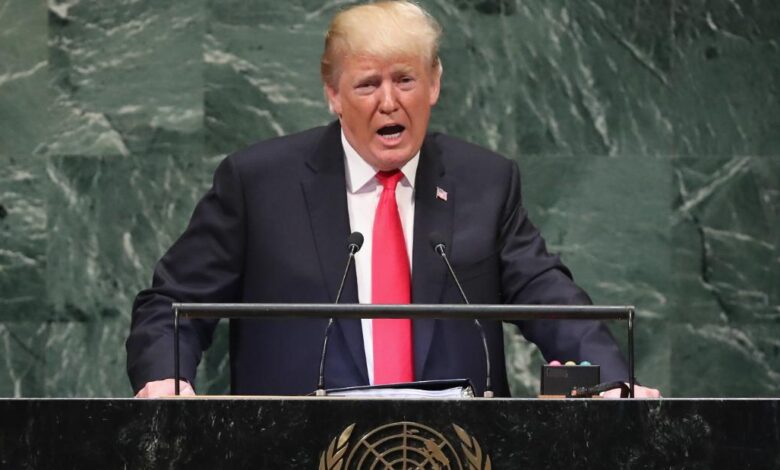Tariff war: Trump imposes 100% tariff on foreign films

The United States President Donald Trump, on Sunday May 4, 2025, launched a fresh attack on foreign cinema .
Trump ordered a 100% tariff on all movies produced outside the United States.
He announced the drastic measure through his Truth Social platform on Sunday evening.

According to reports, the new directive targets all films produced abroad and imported into America.
The President instructed both the Commerce Department and US Trade Representative to implement the tariff.
This move marks a significant expansion of his administration’s protectionist trade policies.
Trump declared the American movie industry faces rapid decline and needs immediate protection.
He blamed foreign countries for luring away American filmmakers with attractive incentives.
“The Movie Industry in America is DYING a very fast death,” Trump wrote passionately.
His post emphasized the urgency of addressing what he views as unfair competition.
Trump believes foreign incentives create an uneven playing field for American studios.
His administration aims to reverse this trend through aggressive tariff policies.
“We want movies made in America, again!” Trump proclaimed in his characteristic all-caps style.
The statement echoes his longstanding “America First” economic philosophy.
Industry analysts view this as Trump’s attempt to revitalize Hollywood’s diminishing dominance.
The American film industry has struggled to regain pre-pandemic prosperity.
US box office receipts peaked at nearly $12 billion in 2018 according to industry data.
The figure plummeted to just over $2 billion in 2020 during pandemic theater closures.
Theaters have reopened since then but continue facing significant challenges.
The number of film releases has dropped to half of pre-pandemic levels.
Total domestic box office revenue remains well below pre-pandemic figures.
No year has surpassed $9 billion in box office takings since 2019.
Hollywood executives express mixed reactions to Trump’s latest trade measure.
Some welcome protection while others fear potential international retaliation.
Major studios worry about possible countermeasures from China and European markets.
These regions represent crucial revenue streams for American blockbusters.
Independent filmmakers criticize the tariff as potentially limiting creative collaboration across borders.
Many successful American films utilize international shooting locations.
Economic experts question whether tariffs will actually boost domestic production.
Tax incentives from individual states might prove more effective than import barriers.
Film critics point out that foreign films represent a small fraction of the US box office.
Hollywood dominates American screens even without protective trade measures.
The Motion Picture Association has yet to release an official statement.
Industry leaders are reportedly meeting to discuss potential consequences.
Trump’s administration plans to finalize tariff details in coming weeks.
Implementation timeline remains unclear pending regulatory reviews.
This represents Trump’s first major trade action targeting cultural goods specifically.
Previous tariffs focused primarily on manufacturing, technology, and agricultural products.
Film industry employment has decreased by approximately 20% since 2019.
Trump hopes tariffs will create more domestic jobs in production.
The announcement coincides with preparations for the summer blockbuster season.
Studios may now reconsider international co-production deals for future projects.
Post Views: 37





